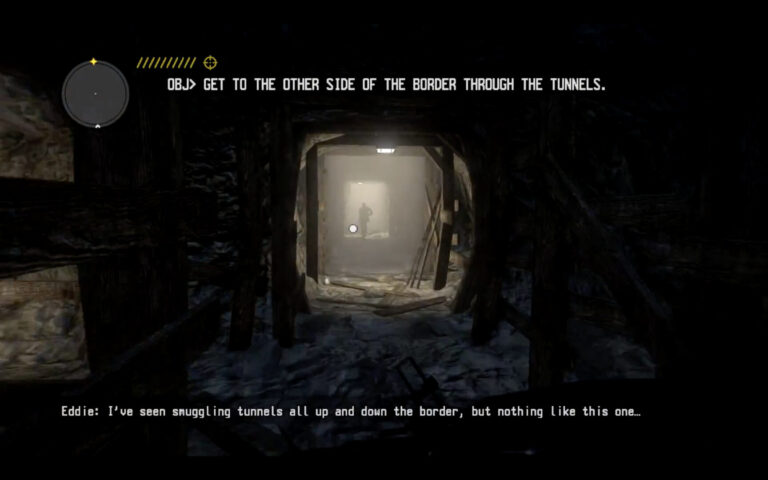Digital networked media actively participate in the nation-state’s and tech entrepreneurs’ efforts to imagine and manage the borderlands. These media facilitate virtual forms of thinking about the border both by offering popular reference points for the new technology being developed (e.g. Google Maps, Pokémon Go, Call of Duty) and by providing the actual tools through which these ideas can become actionable. This article analyzes one such reference point within the first-person shooter (FPS) console game Call of Juarez: The Cartel (Ubisoft, 2011). Like other border-themed video games, The Cartel borrows on colonial tropes and ideologies by creating playable narratives that invoke the untamable frontier and position racialized subjects as Other. Through its virtual modes of representation and interaction, the game encodes the racialization processes that continue to shape popular imaginings of the border. While its digital aesthetics animate a dynamic space of possibility, the logic of the first-person shooter reins in the expansiveness of animated space by restricting it to an interactive experience of tunnel warfare, an ideological orientation to the border underground that channels the players’ purposive motion into a space of direct confrontation and racial violence. Analyzing the narrative and procedural work of this ostensibly reactionary video game demonstrates how border infrastructures structure and shape specific forms of racial and colonial violence.
Articles by Juan Llamas-Rodriguez
Juan Llamas-Rodriguez is assistant professor of critical media studies at the University of Texas at Dallas. His fields of research include borders and migration, infrastructure studies, and Latinx and Latin American media. His monograph Border Tunnels: Media and the Infrastructures of the US–Mexico Frontier (forthcoming from University of Minnesota Press) argues for underground tunnels as media figures with which to interrogate and reimagine the stakes of contemporary border-making practices. He is a member of the Global Internet TV Consortium, a network of media scholars studying internet-distributed screen content around the world, and the host of the Global Media Cultures podcast.
